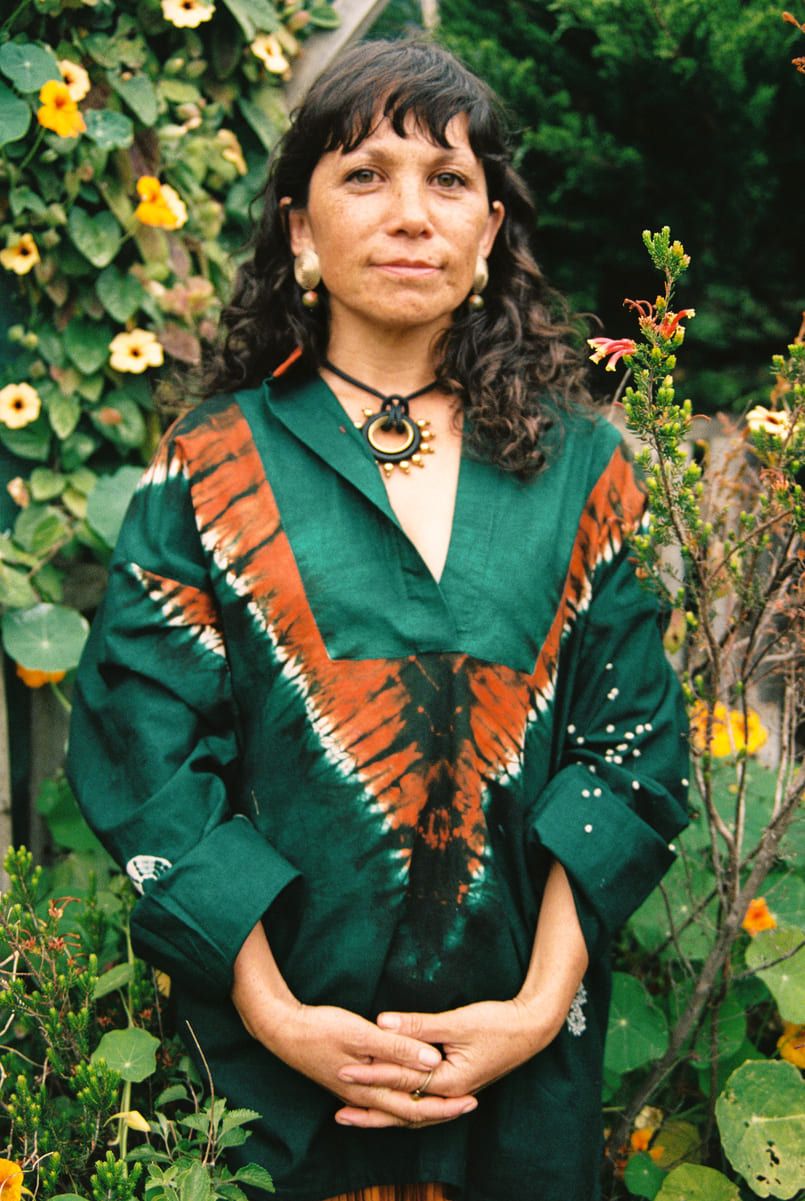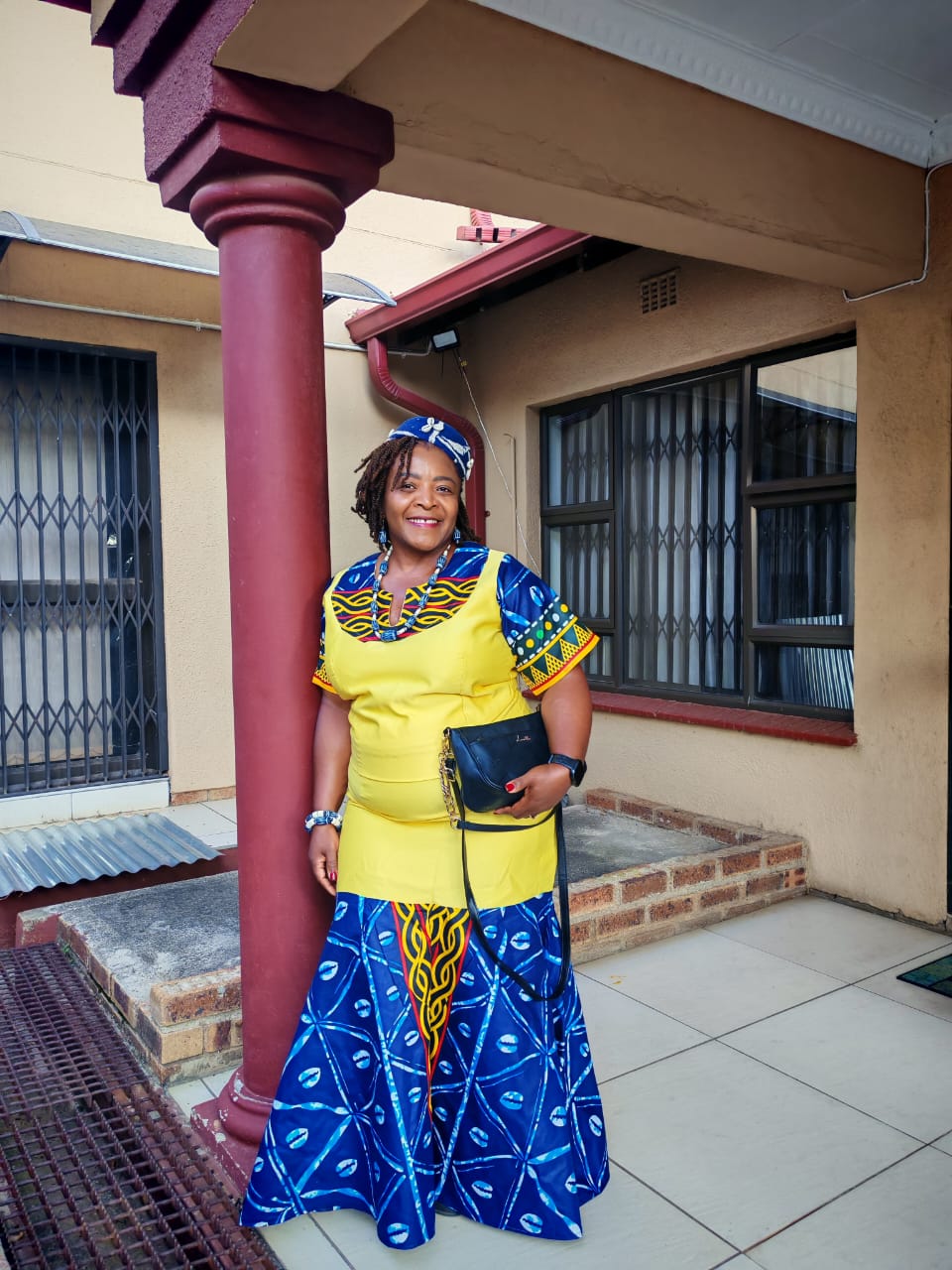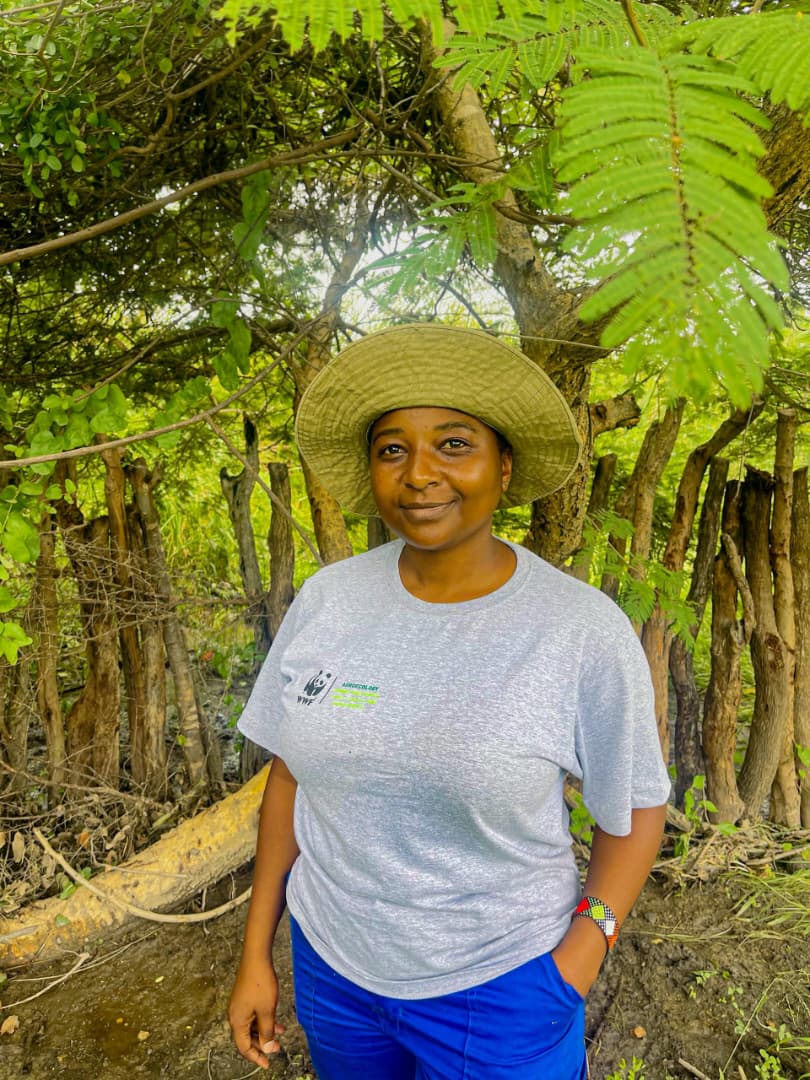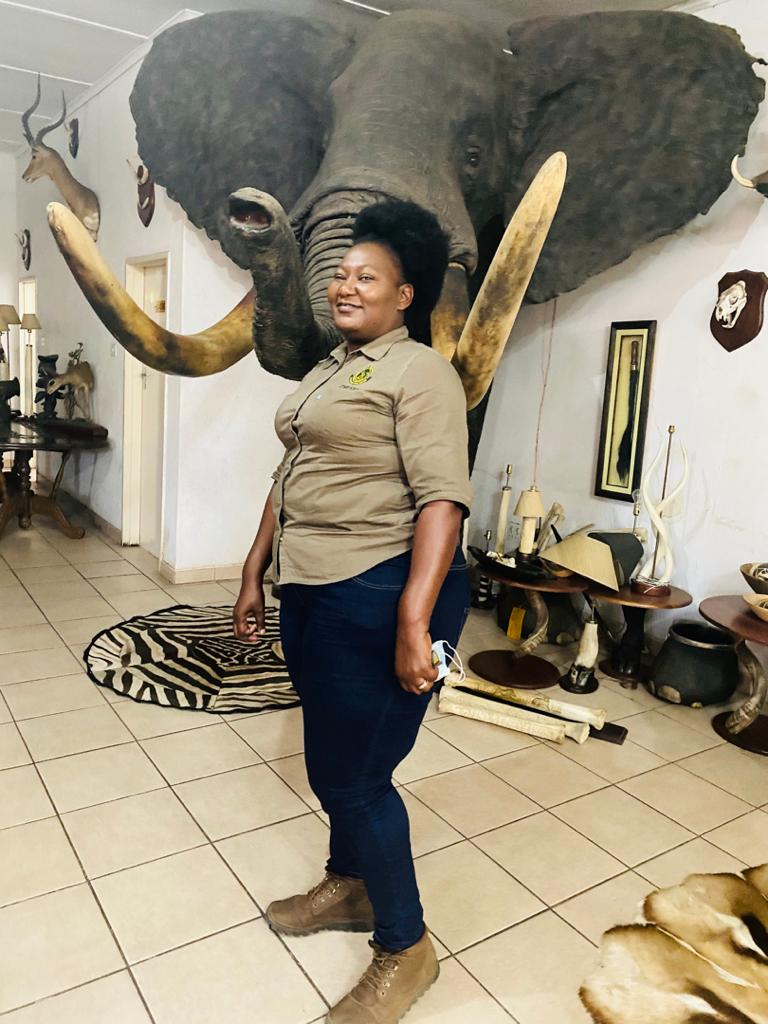She observes before reacting. Listens before speaking. Sees the human stories, yes, but also the more-than-human ones. She dreams about things, writes about them, and then processes them through her body before forming an opinion.

Meet Roushanna Gray. A self-described forager, educator and dreamer who is on a mission to help us reawaken a more meaningful relationship with the land that feeds us.
If her approach to life could be summed up in a single word, it would be presence, or, as she calls it, “the medicine of slowness”.
And yet, we live in a world that often despises slowness. Has she made peace with that?
“Yes,” Roushanna says, “I’ve realised that when I’m caught up in that fast, busy space, I feel untethered. And then, it’s easy to make bad decisions. So I try to weave slowness into my schedule by literally diarising it. I’ll block off a whole day and just be.”
She smiles. “Of course, when that day comes, it’s always tempting to push it off. But once I actually honour it, I come back to my centre of gravity. And then, strangely, everything else becomes more productive. It’s all part of the work.”
And the work, in Roushanna’s case, is, indeed, all about slowing down long enough to recognise that food, more than nourishing us, also connects us. To one another, and to our planet.
But first, some context.
***
Roushanna was born into a large, multicultural, multi-faith, and mixed-heritage family in Cape Town. She recently took a genetic ancestry test and discovered that she carries lineage from every single continent.
Growing up in such a diverse family meant that she was immersed in a kaleidoscope of traditions, perspectives, and stories that shaped her curiosity about people, culture and connection.
“I attended big Christmas celebrations, Pesach and Rosh Hashanah gatherings and Eid celebrations,” she recalls.
“The conversations that happened in the kitchen while the food was being prepared…the spicy debates, the laughter... and then the beautiful dialogue that continued around the table as we shared the meal we’d prepared together…it was all very, very special,” Roushanna says.
Her family, on both sides, were fishers and foragers, and for a while, Roushanna was unsure of her own path. She explored possibilities in the hospitality world but never felt a deep calling towards it.
Then she met someone, fell in love, and moved to Cape Point, where she started a small tea garden.
“My mother-in-law had a beautiful nursery that grew around 900 different indigenous plants, and I started including some of the edible wild flavours she was cultivating and what I was learning from the surrounding Fynbos in my menu. The more I learned about the wild edible plants, the more I realised, this can’t just sit on a menu. It has to go further than that.”
The aha moment came from watching her children, whom Roushanna refers to as “her greatest teachers”.
“I noticed that when they helped gather the ingredients and cooked the meals, they were far more likely to eat everything on their plates. They had a sense of pride, a feeling of belonging, and a connection to the story behind the food,” she says.
Then a vision came to her. What if, she asked herself, food was not just nourishment, but a bridge that connected us to the soil, the sea and to one another?
Her organisation, Veld and Sea, meaning land and sea, was born. She began by teaching children through familiar, approachable meals.
“Over time, I noticed that parents were getting very involved too,” she says.
Then, school groups started coming through for workshops, then universities, then public groups, and eventually, ecotourism became part of the mix.
Her teachings have given countless people a deeper understanding of food and the value it holds. “My children, for instance, know which plant to pick when they’re feeling sick, which succulent can soothe a bee sting and so on. I think that’s incredibly empowering.”
***
It’s interesting because foraging and living from the land sustained humanity for generations. But somewhere along the way, that knowledge began to fade.
“In our busy modern lives, we’ve lost so many meaningful ancestral practices,” Roushanna explains. “People have moved from homesteads to cities for necessity and survival, and traded tradition for convenience. Even if you are not living in an urban environment, it’s easier to go to the shop and buy bread or burgers than to go out and forage.”
“And then there’s the stigma,” she adds. “This notion that foraging is something you do only if you have no other choice, that if you can afford to buy a bag of potatoes, why would you gather wild greens?”
But those so-called weeds are anything but worthless. They’re full of micronutrients, vitamins and minerals. It makes sense to be eating them.
Still, Roushanna is quick to point out that foraging isn’t always accessible or safe for everyone, and that food, like everything else, is political.
***
Veld and Sea has evolved into a collective of chefs, facilitators, scientists, artists and musicians who contribute their unique perspectives and skills to new learning about food.
“When you learn in a multi-sensory way where a memory or lesson is tied to a flavour, a smell or a taste, you never forget it. And you never walk through that space with the same eyes again,” Roushanna says. “For example, when we explore the rock pools and we teach about edible seaweeds and the ecological stories around them, everyone who joins our classes will return to that place with a completely shifted perspective.”
Roushanna and her team have modelled their teachings around the changing seasons in Cape Town.
In spring, the focus is on edible flowers. Autumn is about foraging for wild mushrooms, acorns and chestnuts. During the Western Cape’s rainy season, attention turns to indigenous vegetables, edible weeds and aromatic herbs.
For a while, summer remained dormant because, Roushanna explains, “It is windy, dusty and dry, and unsustainable for harvesting indigenous plants on land .”
Then, one day, a Japanese cyclist showed up at her doorstep.
“He’d been cycling around the world for over three years before finally landing in Cape Town,” Roushanna recounts. “He asked for a place to stay in exchange for helping out at our farm.”
He ended up camping on their family property.
Every day, he’d head to the beach and collect seaweed to cook with. Being a curious foodie, Roushanna wanted to know exactly what he was doing. One day, she went down with him and stood there in the rock pools, watching. Then, he turned to her and asked, “Why is no one eating these sea vegetables?”
That one phrase, sea vegetables, completely shifted her perspective. “I looked at that coastline with new eyes,” she says
The cyclist didn’t know the names of the seaweeds, but he knew that back home in Japan, they were highly prized. That encounter sent Roushanna on a self-taught journey into the world of seaweeds. At the time, there was no course or class to learn about the edible seaweeds in South Africa.
She began scouring old books and texts, but she found only a handful of references and recipes.
“We have over 900 species of seaweed, but there was no culinary education around them, only marine biology…the seaweed that was once a part of our cultural heritage, had disappeared over generations.”
The more she learned, the more fascinated she became. Finally, she discovered that out of our 900 seaweed species, only one isn’t edible. “It’s an incredibly underutilised and overlooked source of food and medicine,” she says.
Following that encounter with the Japanese cyclist, summer became the season to explore seaweeds: the missing puzzle piece in the seasons and cycles of wild flavour in Cape Town.
But Roushanna didn’t stop at what could be eaten. “It opened up so many questions,” she says. “How do we harvest responsibly? How are pollutants affecting the seaweeds? Who has access to these coastlines? And how do marine protected areas, while great for species, impact local communities?”
***
When Roushanna started out, friends, family and even strangers were confused, “Why are you eating weeds?” They would ask, “How can you possibly build a career out of that?”
More than a decade later, curiosity has replaced scepticism. People now want to know how. How can we do this? What recipes are you using? This speaks volumes about the growing awareness of our relationship with food and nature.
“Sometimes something has to become popular or fashionable before it’s truly accepted. And I’m seeing that now,” she says “Though in some ways, it’s gone to the other extreme. Many of these wild flavours are suddenly appearing in high-end restaurants for ridiculous sums of money. And honestly,” she says, “it makes me upset to see chefs claiming to have ‘discovered’ certain indigenous ingredients and then selling them on their menus for exorbitant prices, often without having done any real work to learn from, honour, or even acknowledge the place, the people and the knowledge those ingredients come from. It feels like an injustice to the stories, to the communities and to the land.”
***
Roushanna entered her career with no formal education, no fancy degree to her name, and no prior botanical experience. For a while, she wrestled with that quiet, persistent voice that continuously whispered, You’re not qualified enough. You don’t belong here.
“I had to make sure my teachings and workshops were rooted in science,” she says. “It was the only way to be taken seriously.”
And to get scientific, she spent years in the field, learning through observation, tasting and experimentation. Ultimately, she earned credibility and trust.
“I finally feel free to weave in my own eco-spirituality; that intuitive, soulful connection to the land and sea that has always guided me,” she says.
Roushanna has travelled the length of South Africa’s coastline, taught in Namibia, and is now heading to Portugal to learn about the sister seaweed species that occur in the Atlantic Ocean. “It’s incredible,” she says, “how these seaweeds have become a bridge for connection across oceans. You start to see that, no matter where in the world we are from, nature weaves us together in kinship.”
She smiles. “And food too. Food is such a beautiful tool for learning because it’s something we all relate to. The act of foraging for food from the wild is, I think, our strongest connection to the Earth. We all eat every day, and whether we realise it or not, every meal is a conversation with nature.”
***
This interview is part of a series profiling the stories of the 2025 WE Africa leadership programme fellows. African women in the environmental conservation sector who are showing up with a strong back, a soft front, and a wild heart.
***
About Roushanna Gray
Roushanna Gray is the founder of Veld and Sea, where she merges her passions for wild food, creativity, earth and ocean. Based in Cape Point, South Africa, she has developed immersive, award-winning experiences that connect people to nature through seasonal foraging and nature-centred learning.
Over the last 16 years, her teachings on edible plants and seaweeds have inspired curiosity about the natural world, emphasising the transformative power of nurturing reciprocal relationships with the environment. By engaging with the seasons and cycles of nature, participants develop a deeper understanding of self, spirit and science, perceiving these spaces as home and habitat to more than just humans, with values that go beyond food. This hands-on, multi-sensory methodology fosters a deeper connection and understanding of our natural world through a culinary and ecological lens.





